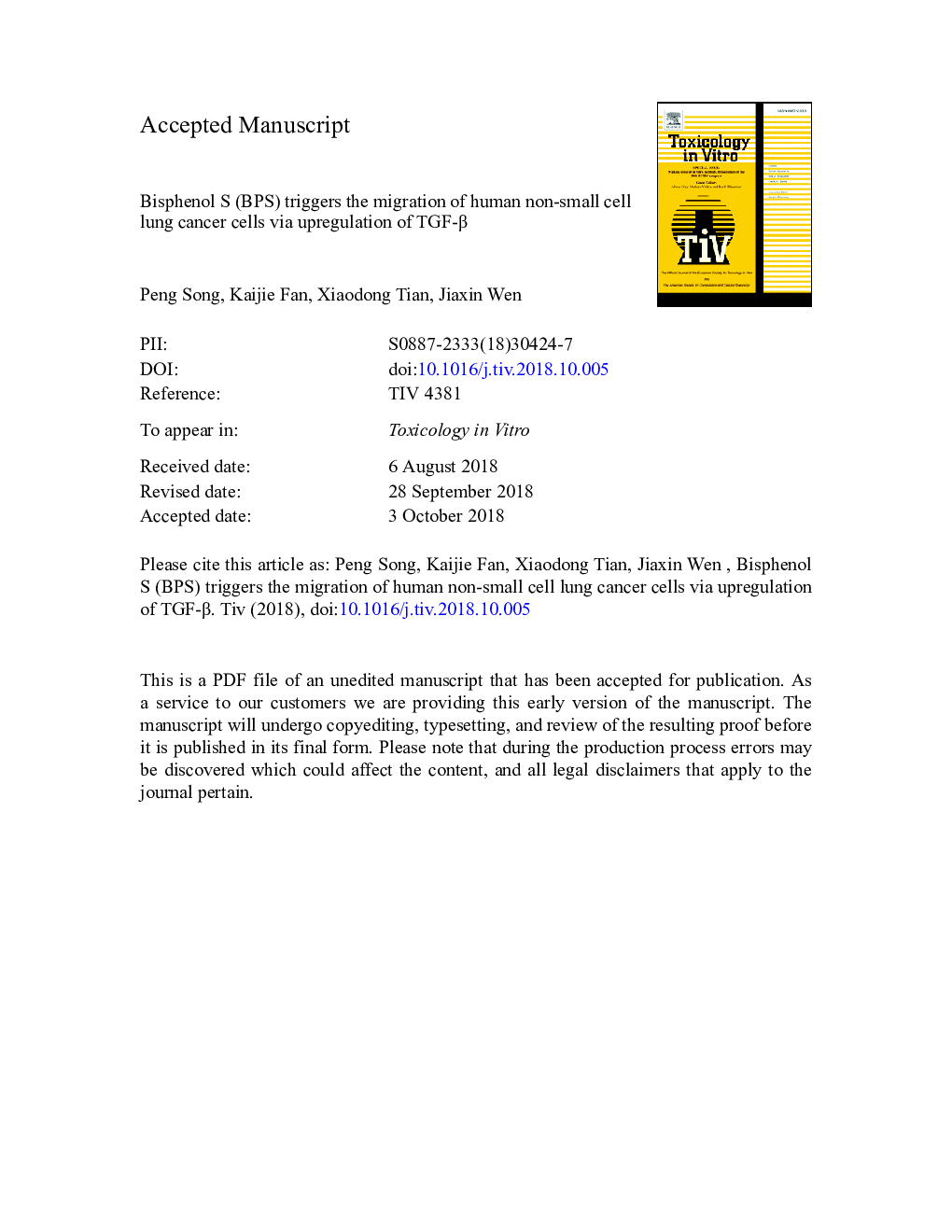| Article ID | Journal | Published Year | Pages | File Type |
|---|---|---|---|---|
| 11025661 | Toxicology in Vitro | 2019 | 25 Pages |
Abstract
As one of the leading causes of cancer deaths world-wide, the progression of human non-small cell lung cancer (NSCLC) can be regulated by estrogenic signals. Our present data showed that an industrial endocrine disrupting chemical, bisphenol S (BPS), can promote the in vitro migration of NSCLC cells, which was evidenced by the upregulation of vimentin and matrix metalloproteinase-2 (MMP-2). BPS can increase the mRNA and protein expression of IL-10 and TGF-β. While only targeted inhibition of TGF-β can block BPS induced migration of NSCLC cells. The upregulation of TGF-β can further activate the Smad-2/3 pathways. Further, BPS induced expression of TGF-β was ERα/β or G protein-coupled estrogen receptor (GPER) independent, since targeted inhibition of ERα/β or GPER had no effect on BPS induced transcription of TGF-β. We identified that the inhibitor of ERK1/2 can attenuate BPS induced expression of TGF-β and activation of Smad-2/3 pathways. Collectively, we found that nanomolar BPS can trigger the in vitro migration of NSCLC cells via ERK1/2 mediated activation of TGF-β/Smad-2/3 pathways.
Related Topics
Life Sciences
Environmental Science
Health, Toxicology and Mutagenesis
Authors
Peng Song, Kaijie Fan, Xiaodong Tian, Jiaxin Wen,
